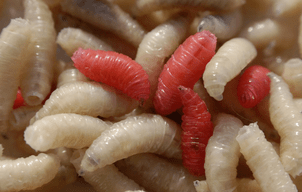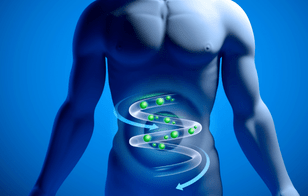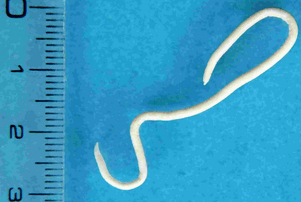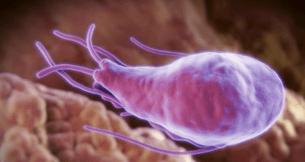It is also difficult for a normal person to imagine how many parasites can be a threat to his health. These "settlers" can live in the human body for years, literally sucking life out of it andPoisoning it with its poison.
Types of parasites

From a pharmaceutical point of view, parasites include unicellular and protozoa. Based on their habitat, they are divided into exoparasites (lice, insects, and others) and endoparasites.
Endoparasites have their own subspecies:
- Larvae spread by insects.
- protozoa (amoeba, lambelia).
- helminths (insects or insects).
transition path
Each parasite has its own path of entry into the human body. The most common method is alimentary, ie with the help of water or food. Many insects can carry parasitic larvae, contaminating the environment. Raw water, without ripening. And by consuming well-cooked foods, a person becomes infected with parasites.
Some species are transmitted directly by person-to-person contact - this path is called contact-house. For infection, it is not necessary to have direct contact with the distributor, it is necessary to use household items. In this way enterobiasis and some other parasitic forms are transmitted.
The equally popular vector-borne infection pathway. In this case, the parasites are carried by blood-sucking insects. Thus, they can be obtained after being bitten by a mosquito or other insect.
The final way to obtain parasites is the percutaneous route, another name is active. Infection occurs through the entry of larvae through the mucous membrane and skin. Due to contact with contaminated soil or water in the bodyit happens.
symptoms
Parasites in the human body can live for a long time and cannot manifest themselves. Characteristics will, of course, but they are disguised as other diseases. That is why a person knows for a long timeCan not walk that he is infected.

Symptoms often appear depending on the location of the larva, but the body can indicate infection and other manifestations. The most common are:
- flatulence,and indicates the presence of worms in the continuous, small intestine;
- diarrhea.Due to the absorption of sodium chloride by the parasite;
- Constipation.Insect tangles can block some organs;
- joint and muscle pain.These pains are caused by the migration of larvae through the human body, which is how the immune system reacts in this way;
- allergy.Parasites are an allergen to the body itself, and damage to the walls of the stomach contributes to indigestion and the entry of food molecules into the blood;
- presence of granuloma.It is a type of neoplasia produced by the covering of the cells of the body of the parasitic destroyed eggs;
- dermatological manifestations;
- anemia.Often people suffer from fine anemia due to the activity of parasitic forms;
- sharp fluctuations in weight;
- mental disorder.In the process of life, parasites release toxins that negatively affect the host's nervous system. Poisoning the body can result in neurosis, depression, anxiety;
- bruxism.It is the grinding of teeth during sleep. It is the response of the nervous system to the presence of foreign bodies. But this fact is not conclusively proven by science;
- sleep disorder.As a rule, it arises from uncomfortable sensations. An example would be germs here, for those who lay their eggs at night. Except the rectum, the pinworm secretes a toxin that causes severe itching. Is formed;
- dysbacteriosis;
- oncological disease;
- chronic fatigue.is caused by nutritional deficiencies, which negatively affects the condition of the body;
- Diseases of the respiratory tract.Many parasites can live in the respiratory tract, causing disease. Other parasites move through the respiratory system to provoke colds.
- immune disorder.Absorption of most vitamins by parasites is more likely to weaken the body's barrier functions and contract diseases.
But there are also signs of the presence of parasites in a particular human organ. For example, papillomas, bald spots on the head, cracked heel, etc. , can be a sign of the life of parasites in the liver. , The presence of certain types of parasitic forms can provoke a certain type of disease in humans.
disease detection

Unfortunately, some doctors deny their duties and do not send a person to a special study to identify the parasites in the body. The most common analysis is the distribution of feces for insect eggs. Is that parasites can inhabit various organs.
There have been cases when insects were found in a person's brain and eyes. Is it likely that their eggs will go into the feces from the brain? Most probably not. Parasites cannot get eggs even if there are insects in their intestines.
First, the doctor must perform a visual examination of the patient. Externally, the presence of human parasites can be suspected. The easiest way to detect them is to detect specific antibodies for the worms. To do a blood test.
Description of human parasites
There are several dozen types of parasites that inhabit the human body.
Worms or helminths are a type of worm.Their size depends on the species, for example, female roundworms reach up to 40 centimeters. Some species can grow more than 10 meters in length. A preferred habitat for insects is the intestines, but they often have otherOccur in organs, even the brain.
For example, roundworm larvae roam through the body, collect nutrients, and return to the intestines, where they grow and reproduce. They often live in respiratory organs. The presence of ascaris in the human body is accompanied by disorders of work of internal organs, body intoxication, allergic manifestations and even an increase in temperature.
Between the tapeworms is the pork tapeworm, which travels to the brain via blood. This parasite enters the body through poorly processed meat products. This worm lasts for 20 years.
This parasite enters the body through poorly processed meat products. This worm lasts for 20 years.
Pinworms often develop in children, but are quite common in adults. These worms are small in size, reaching up to 1 centimeter in length. Pinworm eggs are spread in a contact-home manner. Outside the rectum. It originates and lays eggs in the outer layers of the anus. The toxin released by the drug causes severe itching, which causes the eggs to fall on human hands and transfer them to all surrounding objects.
Another name for enterobiasis is dirty hand disease. All people who come in contact with the carrier are likely infected. Therefore, when pinworms are found, treatment is recommended for the whole family.
Toxocarais a type of parasite that lives in dogs. They enter the human body and develop well in it. Unlike these worms in the dog's body, human toxin is out. Does not leave, but they affect many organs and cause some diseases. You can get infected with toxocars through the soil, as the larvae of these insects come out with dog feces. But also parasites. Eggs can be spread by the dog's wet breath.
Alvococcus and Echinococcusinfect the body in many ways. Their danger lies in the fact that the larvae turn into ulcers, which can be found in various internal organs.
Giardia is the simplest.Like pinworms, Giardia is the most common infection in children. They not only lower a child's immunity, but also delay the mental and physical development of children.
They not only lower a child's immunity, but also delay the mental and physical development of children.
This list is far from exhaustive. The main danger of parasites is that no one is immune to infection. Their privacy leads to the fact that a person has been living for years without a doubt. Feeds. Compliance with personal hygiene, continuous wet cleaning of housing and heat treatment of meat products is not a bad prevention of infection. To prevent the spread of parasites, undergo a doctor's examination every six months andIt will be useful to pass the necessary tests.


















































